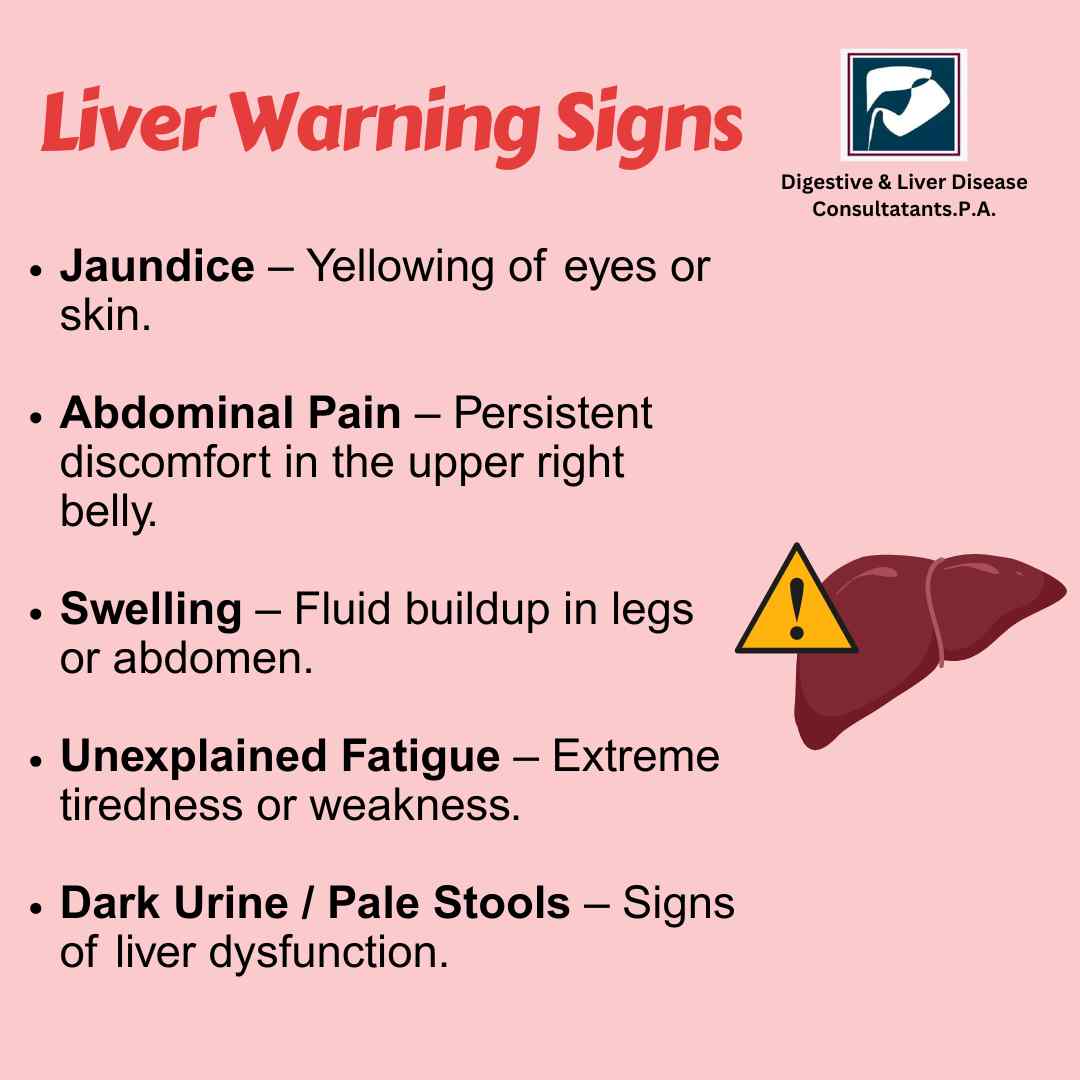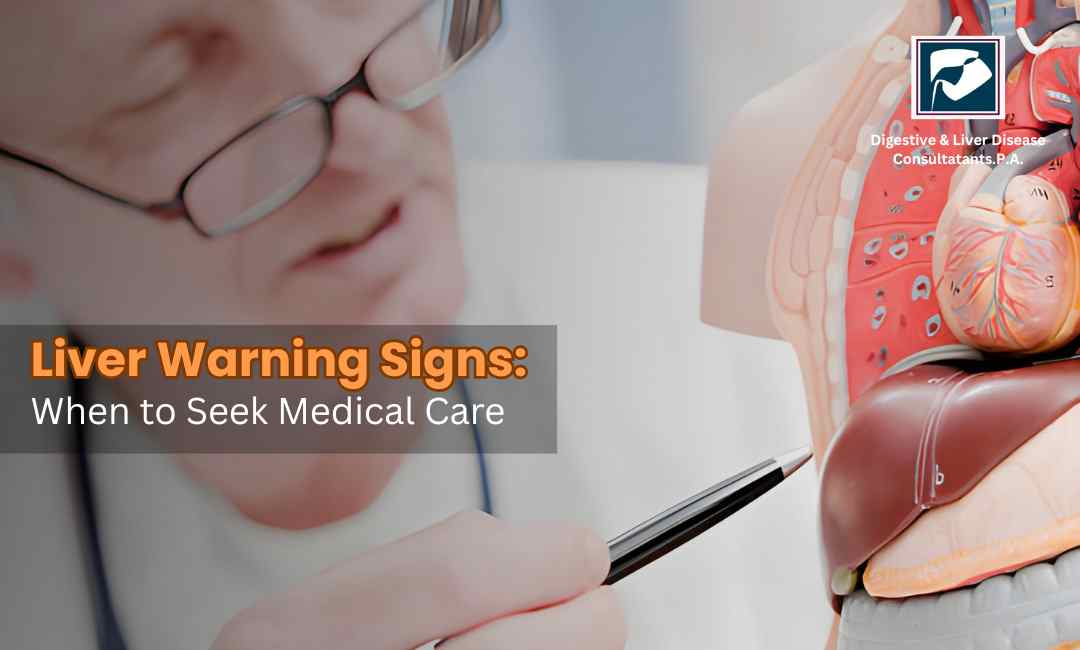Your liver is one of the most vital organs in your body. It plays a key role in digestion, metabolism, detoxification, and storing essential nutrients. Despite its importance, liver problems often go unnoticed until they become serious. Understanding the warning signs of liver disease and knowing when to seek medical care can make a significant difference in your health.
Common Warning Signs of Liver Problems
The liver is resilient and can often compensate for damage, but certain symptoms should not be ignored. Here are some common liver warning signs:
1. Jaundice
Jaundice is a yellowing of the skin and eyes and is one of the most recognizable signs of liver dysfunction. It occurs when bilirubin, a substance produced during the breakdown of red blood cells, builds up in the body due to impaired liver function. If you notice yellowing in your eyes or skin, it is crucial to seek medical care immediately.
2. Abdominal Pain and Swelling
Pain or discomfort in the upper right portion of your abdomen can indicate liver inflammation, fatty liver disease, or other liver conditions. Swelling in the abdomen or legs may also occur due to fluid retention caused by liver dysfunction.
3. Chronic Fatigue
Feeling unusually tired or weak despite adequate rest may be linked to liver disease. The liver helps convert nutrients into energy, and when it is not functioning properly, fatigue can become persistent and interfere with daily activities.

4. Dark Urine and Pale Stools
Changes in urine and stool color can signal liver problems. Dark urine and pale, clay-colored stools are often associated with bile flow issues, which may indicate liver or gallbladder disease.
5. Nausea and Loss of Appetite
Persistent nausea, vomiting, or a significant decrease in appetite can be related to liver dysfunction. These symptoms may also be accompanied by unexplained weight loss.
6. Easy Bruising and Bleeding
The liver produces proteins necessary for blood clotting. When liver function is impaired, you may notice that you bruise easily or bleed more than usual, even from minor cuts.
7. Itchy Skin
Chronic itching, particularly without a clear cause, may be linked to liver disease. This can occur due to a buildup of bile salts in the skin.
8. Swelling in the Legs and Ankles
Fluid retention caused by liver problems can lead to swelling in the lower extremities. This condition, known as edema, is another indicator that your liver may not be functioning properly.
When to Seek Medical Care
Early detection of liver problems is critical. If you experience any of the warning signs mentioned above, it is important to schedule an evaluation with a liver specialist. Prompt medical care can prevent further liver damage and improve outcomes.
People at higher risk for liver disease include those with a history of excessive alcohol consumption, obesity, diabetes, hepatitis infections, or a family history of liver conditions. Regular check-ups, blood tests, and imaging studies can help monitor liver health, even if symptoms are not yet present.
Digestive & Liver Disease Consultants, P.A. Expertise
At Digestive & Liver Disease Consultants, P.A., our team of experienced gastroenterologists and hepatologists specializes in diagnosing and treating liver and digestive disorders. We provide personalized care for conditions such as fatty liver disease, hepatitis, cirrhosis, and liver cancer. Using advanced diagnostic tools and treatment approaches, we aim to improve liver health and overall well-being.
Our clinic emphasizes patient education and preventive care. We guide patients on lifestyle changes, nutrition, and medical interventions to manage liver disease effectively. From initial consultation to long-term care, Digestive & Liver Disease Consultants, P.A. is committed to helping patients achieve better digestive and liver health.
Lifestyle Tips to Support Liver Health
While medical care is essential for managing liver disease, maintaining a healthy lifestyle can also protect your liver:
Eat a Balanced Diet: Focus on fruits, vegetables, whole grains, lean proteins, and healthy fats. Limit processed foods, sugar, and saturated fats.
Stay Hydrated: Drinking enough water helps your liver flush out toxins.
Exercise Regularly: Physical activity can help reduce fatty liver and improve overall health.
Limit Alcohol Consumption: Excessive alcohol intake can damage the liver over time.
Avoid Risky Medications and Supplements: Certain medications and herbal supplements can harm the liver. Always consult your doctor before taking new medications.
Conclusion
The liver is essential for your overall health, and recognizing warning signs early can prevent serious complications. If you notice symptoms such as jaundice, fatigue, abdominal pain, or changes in urine and stool, it is important to seek medical care promptly.
Digestive & Liver Disease Consultants, P.A. offers expert evaluation and treatment for liver and digestive disorders. Our compassionate team ensures personalized care, early diagnosis, and effective management to improve liver health.






